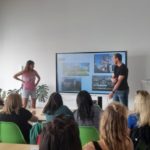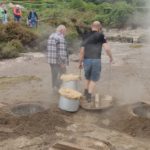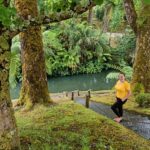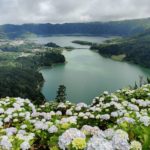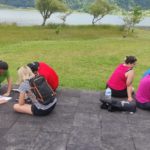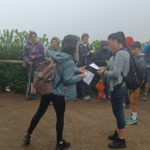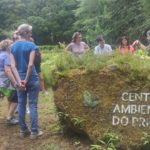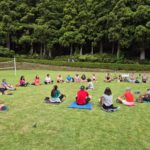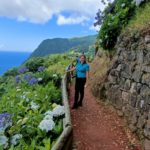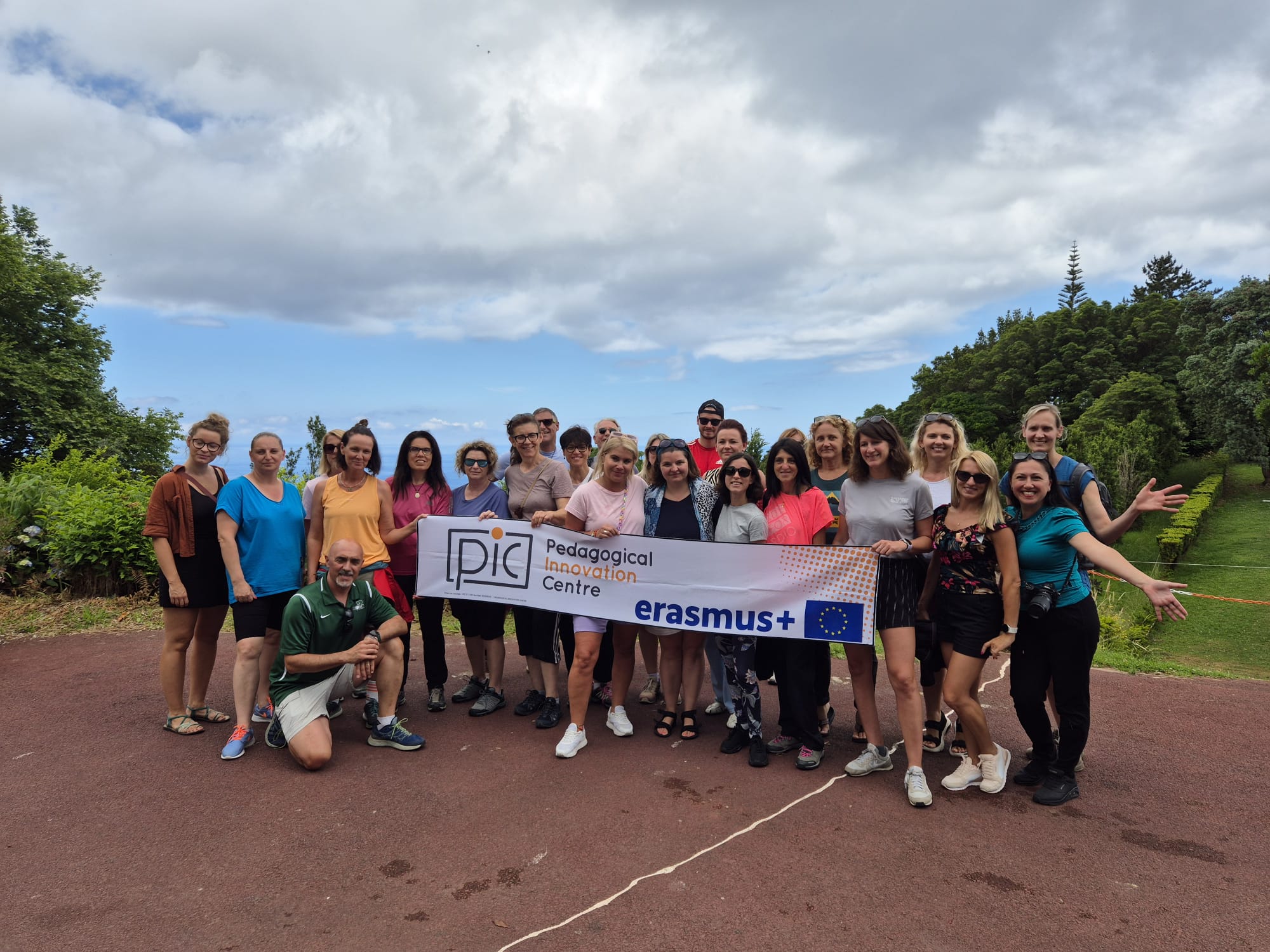
17 Jul Azores Sustainability, environmental education and outdoor education
Participant: Ms Claire Lauri
Dates: 7th–12th July 2025
Location: São Miguel Island, Azores
This Erasmus+ course offered an immersive and hands-on experience in sustainability and outdoor education. The course combined classroom discussions, cultural exchange, and extensive outdoor activities across the diverse landscapes of the Azores. This enriching experience allowed me to connect with nature, explore innovative teaching methods, and reflect on how I can incorporate sustainability into my Home Economics and Hospitality lessons.
We visited the Priolo Centre and learnt about protecting endangered species like the Azorean bullfinch. We discussed the harmful effects of pesticides, the importance of organic food, and the six Rs of sustainability: Rethink, Refuse, Reduce, Reuse, Repair, Recycle.
The outdoor learning sessions were particularly impactful. We engaged in forest games using sounds, textures, and leaves—experiences that I can easily adapt to the classroom. I also appreciated the chance to slow down and connect with nature: listening to insects, noticing the details of plants, and enjoying the fresh air. I wished I had more time in the wild to truly immerse myself in the natural beauty of the Azores.
Key Learning Outcomes
- Gained new teaching strategies to integrate sustainability across subjects,
- Learned about organic agriculture, the dangers of pesticides, and the importance of protecting local ecosystems.
- Studied real-life examples of sustainability such as reuse of invasive plants, forest regeneration, and community-based conservation.
Outdoor Learning Benefits
- Physical Health: Active exploration in nature improved fitness and energy.
- Mental Wellbeing: Time outdoors enhanced mindfulness and reduced stress.
- Real-World Connection: Sustainability concepts were understood through direct experiences.
- Social Development: Group work promoted collaboration, communication, and idea-sharing.
These projects show how environmental protection and sustainability can go hand-in-hand with tourism, agriculture, and community well-being. They serve as excellent models for other island regions and even for small countries like Malta.
Inspiring Sustainability Practices in the Azores
- Sustainable agriculture and organic food production.
- Use of renewable energy: geothermal, solar, and wind.
- Coastal conservation: controlled access to Vila Franca do Campo islet to protect ecosystems.
These initiatives illustrate how environmental, social, and economic sustainability can coexist.
Community Engagement Ideas for Malta
Inspired by Azorean models, I plan to:
- Encourage community gardens to promote food security and education.
- Organise clean-up events in local natural areas.
- Offer workshops on sustainability and responsible consumption.
- Build partnerships with local businesses to support eco-friendly practices.
Personal and Professional Impact
This experience deepened my connection to nature and enriched my teaching approach. I now have a toolkit of engaging, adaptable activities and a renewed motivation to involve my students—and the wider community—in creating a greener, more sustainable future.


